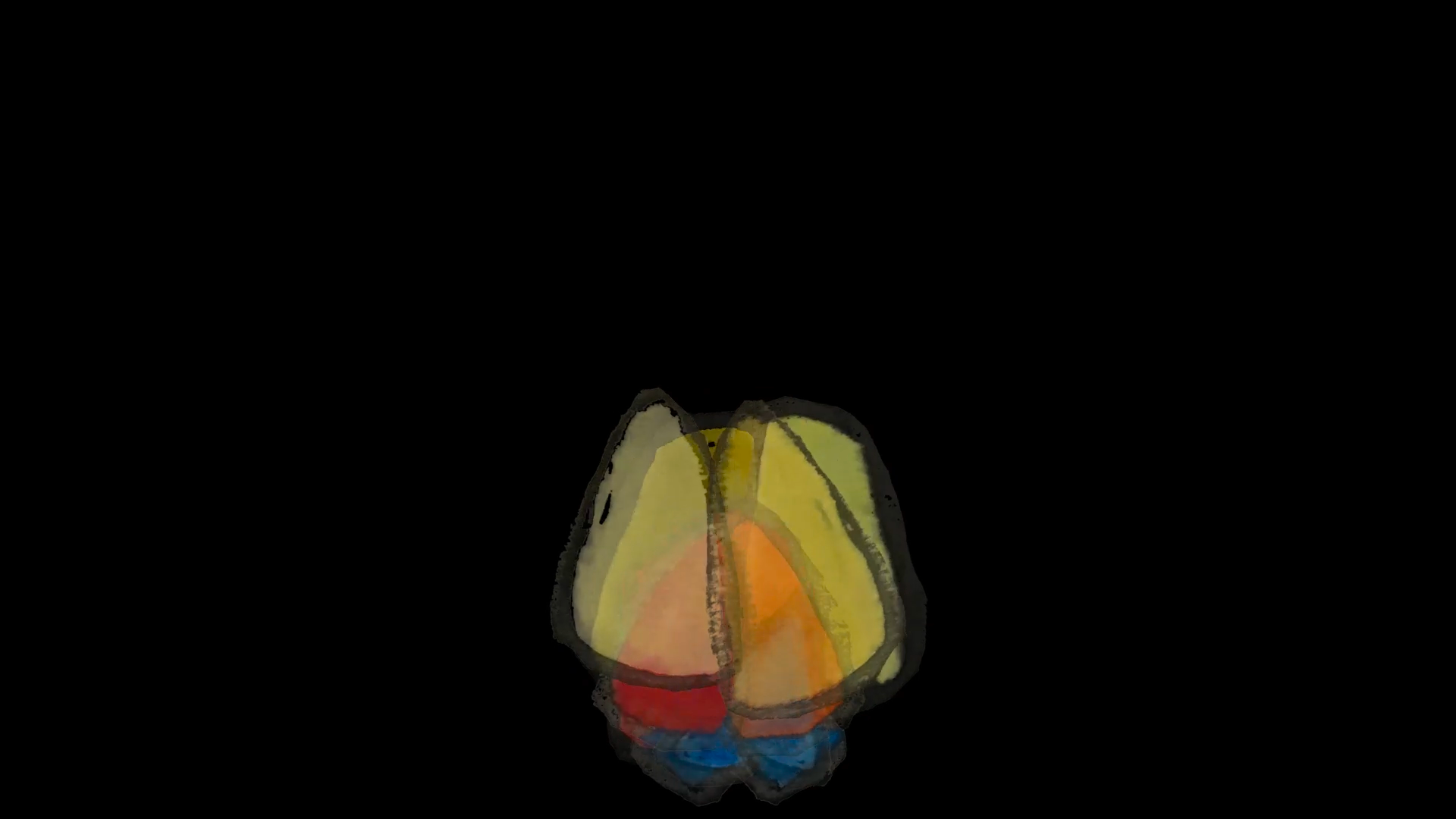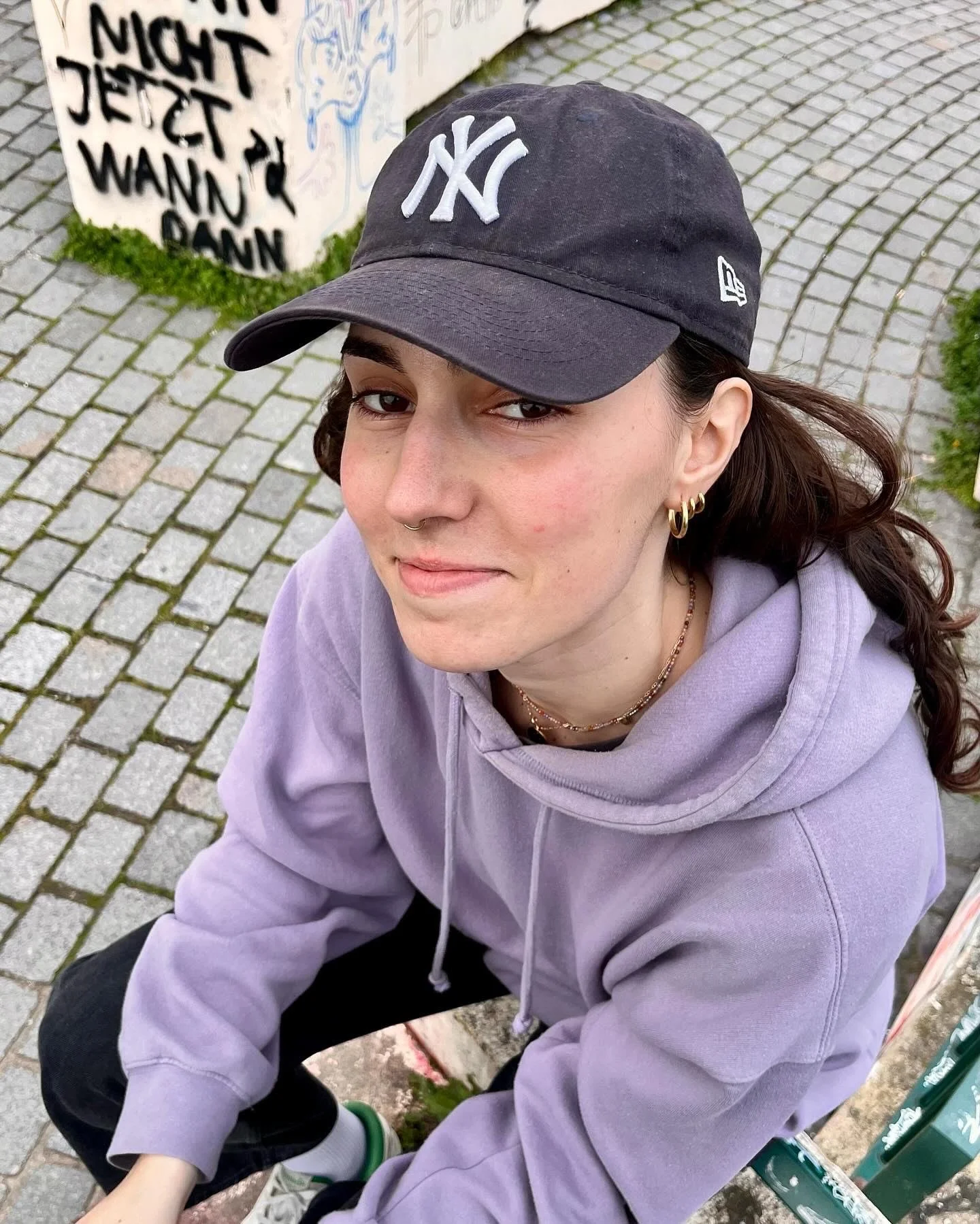Aras Zeug
Homage to DONIKA KELLY
the text has been sitting on my walls for a while
several countries and different flats, but
each time: above my desk
each time: the glue behind the yellow note paper
struggling slightly more to stick, the red ink
more and more transparent under the sun
I wrote it and I did not write it
the traces of the letters are mine
the spacing between the words
the tall skinny I’s, the rounded M’s, the sharp Ts
an homage to someone else’s phrases on my tongue
in red ink flowing from my body
bleeding me dry
I traced each sign carefully years back
and when I did, I fucked the verses up, started
midway through, mixed
one line with the next
remade stanzas as the paper allowed
while I savoured each word on my tongue
I repeated them over and over
and over and over
tonight
practice
trust
somewhere
I imagined foothills, valleys and drives
and trust. I trusted. I trusted her more than myself
at first. But then I knitted a blanket of her words
with which to warm my skin at dusk
and when I sat on my bed alone
fingertips running through its holes
I could finally hug both
sorrow and hope
____
Statement of Homage
I first heard Donika Kelly’s “In the Chapel of St. Mary’s” in a podcast, walking a friend’s dog on a rainy Swedish morning at wintertime. I was sad and unhopeful: strained from a former best friend, struggling to hold onto newer relationships. Her poem whispered quietly through headphones right into my eardrums, Kumo (the dog) pulling the leash insistently, a few tears rolling from eyes to cheeks, dripping under several layers of clothing…I found a new, open space inside my chest where I could breathe wide. I would think it ironic at first, to fall for a poem about faith and trust when I had renounced my childhood creed years back (Catholicism runs deep within many families’ traditions in Spain, so I had learned the rituals and performances of the Church as a summer-time altar girl under my grandparents’ wing). But then, the poet is herself a non-believer, she does not know why she entered the Chapel either, she can’t tell us what happened there. There : a location of place and a state of mind and an opening of the chest. Like her, I needed a space inside where trust could exist. Like her, I needed to practice. I needed to make a little practice. Back home, while Kumo disappeared down the hall wagging his tail, I put away his harness, his poop bags, his toys. I grabbed a yellow note paper from the kitchen counter. I wrote three of the verses down. I whispered them. I read them again and again and again. Breathed. Smiled.
Donika Kelly
Donika Kelly is the author of The Renunciations and Bestiary (Graywolf). A Cave Canem graduate fellow and member of the collective Poets at the End of the World, she earned an MFA from the Michener Center at the University of Texas at Austin and a PhD in English from Vanderbilt University. Originally from Los Angeles, Donika currently lives in Iowa City with her wife, working as an associate professor in the English Department at the University of Iowa, where she teaches creative writing.
____
Aras Zeug is a transfeminist anticapitalist activist and a multilingual writer with a linking for words of small revolutions and oblique existences. Raised in Madrid and temporarily adopted by Malmö where she graduated from human rights, she now lives in Paris where she continues her education in literature and gender studies. Her texts have been published in Paris Lit Up and in Detours, a trilingual book from Le Phare Collectif.

